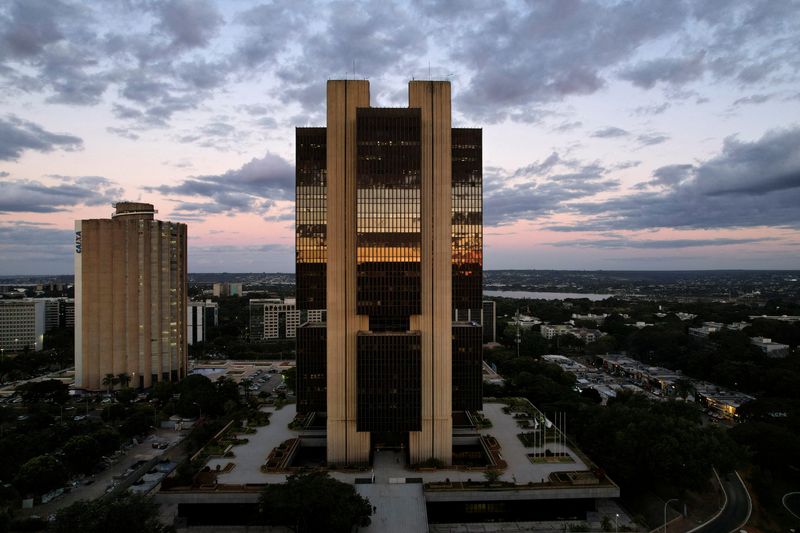BRASILIA (Reuters) - Brazil recorded a current account deficit of $3.1 billion in November, the central bank said on Monday, widening the 12-month shortfall mainly due to a weaker trade surplus.
The monthly deficit was narrower than the $3.3 billion forecast in a Reuters poll of economists, but marked a significant deterioration from the $3 million deficit registered a year earlier.
Over the 12-month period, the current account deficit rose to 2.37% of gross domestic product (GDP), doubling the level seen a year ago.
The widening deficit reflects Brazil's stronger-than-expected economic performance, which has boosted imports and reduced the trade surplus.
Finance Minister Fernando Haddad has estimated this year's economic growth at 3.5%, sharp contrasting with the 1.6% expansion projected by private economists at the beginning of the year.
The robust economic activity has also driven up net spending on services and widened the deficit in factor payments, contributing to the larger current account gap.

In November, the trade surplus reached $6.3 billion, a 20.9% drop from a year earlier. The deficit in services rose 24.6% to $4.7 billion, while the factor payments deficit increased 13.8% to $5 billion.
Foreign direct investment (FDI) for the month totaled $7 billion, exceeding the $6.5 billion forecast in the Reuters poll. Over the 12-month period, FDI stands at 3.0% of GDP.